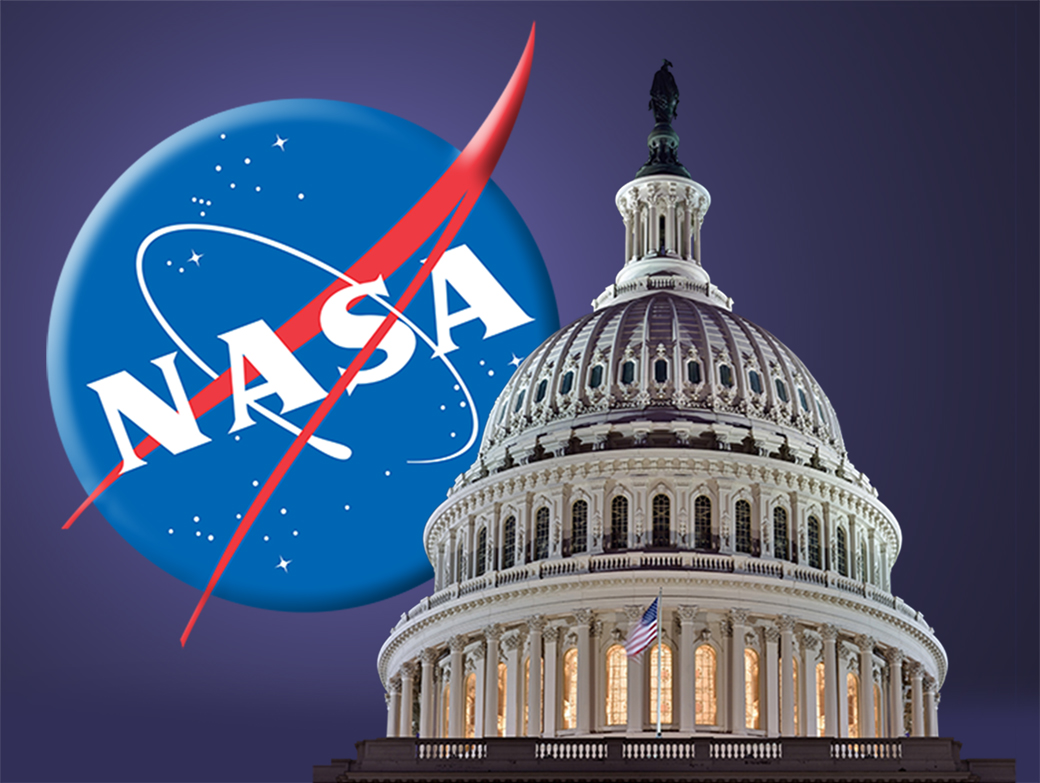Products You May Like
WASHINGTON — More than 40 House members have signed a letter asking for a significant increase in NASA’s science budget for 2025, a request that will be challenging to fulfill given spending caps.
The May 1 letter to the chair and ranking member of the House Appropriations Committee’s commerce, justice and science (CJS) subcommittee, signed by 44 members, asked appropriators to provide at least $9 billion for NASA’s science programs in their fiscal year 2025 spending bill, more than $1.4 billion above the administration’s request and $1.67 billion above what the agency received for science in 2024.
The additional funding, the letter argues, would build up buying power for NASA science programs eroded by inflation as well as a significant cut in 2024 linked to budget caps enacted as part of an agreement to raise the debt ceiling. That funding is needed for science missions recommended by various decadal surveys that are facing restructuring, delays or even cancellation.
“Under this funding level,” the letter says of the agency’s request for 2025, “NASA would be unable to meet the science ambitions set by the National Academies of Sciences’ Decadal Surveys that were unambiguously supported in the FY 2024 Consolidated Appropriations Act.”
Providing at least $9 billion, the letter states, would allow continued support for the Geospace Dynamics Constellation mission, the top-ranked mission of the latest heliophysics decadal that NASA proposed to cancel in the 2025 request. It also would support the Earth System Observatory line of missions, Mars Sample Return and early technology development for the Habitable Worlds Observatory. The increased funding would also support existing missions, including those like the Chandra X-Ray Observatory and Hubble Space Telescope facing cuts in the 2025 request.
The letter was led by Reps. Don Bacon (R-Neb.), Judy Chu (D-Calif.) and Glenn Ivey (D-Md.) Bacon and Chu are the co-chairs of a revived planetary science caucus in Congress that seeks to garner support for planetary science and related NASA science activities, like studies of exoplanets and the search for life. Chu’s district includes the Jet Propulsion Laboratory and Ivey’s the Goddard Space Flight Center, two NASA facilities that focus on science missions.
Forty-one other members of Congress from across the country also signed the letter. All but 3 of the 44 signatories are Democrats.
The letter was sent to appropriators around the same time as a “Day of Action” lobbying effort by The Planetary Society. Nearly 100 members of the advocacy group traveled to Washington to meet with members to seek increased funding for NASA science programs.
However, congressional sources are doubtful that advocates will get any increase in science funding above the request, let along the large increase sought in the letter. With budget caps in place from the debt-ceiling deal for 2025, requests for funding increases will be a zero-sum game, they said, requiring cuts either elsewhere in NASA or from other agencies funded by the CJS subcommittee.
Speaking at a May 8 meeting of the NASA Advisory Council — its first public meeting in nearly 16 months — NASA Administrator Bill Nelson lamented the “considerable constraints” that he again blamed on a “certain element in the Congress” that forced the budget caps included in the debt-ceiling deal. He estimated cuts “close to $2 billion” in fiscal years 2024 and 2025 combined for NASA science, with no sign that he thought any of the potential cuts in 2025 could be recovered.
Another council member offered a different take on the budget challenges facing NASA science programs. “I think one of the reasons we’re having trouble with NASA’s science budget is because it is internationally focused,” claimed Charles Bolden, a former NASA administrator and current member of the council, later in its meeting. “It is the key to what NASA does internationally as a soft-power tool and Congress, today, they have no interest in international anything.”
“We’ve got to figure out a way to help NASA tell the story of reigniting our interest in being a global leader,” he added, “otherwise, the science budget is going to continue to go down.”
